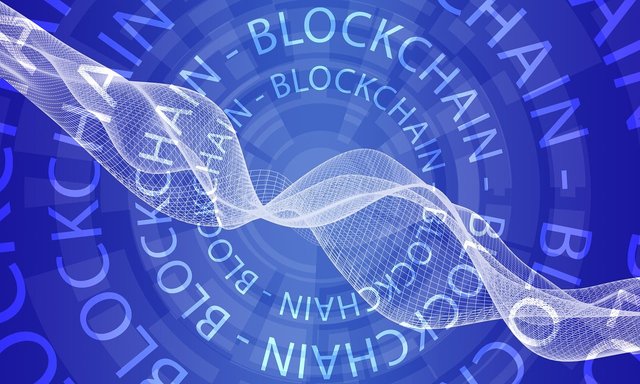The Transformative Influence of Blockchain Technology on Daily Life

Introduction:
Blockchain technology, once synonymous solely with cryptocurrencies, has evolved into a force that promises to reshape various aspects of our daily lives. This blog post explores the profound impact of blockchain on everyday activities and how it has the potential to enhance efficiency, transparency, and security across multiple domains.
Decentralized Data Management:
Blockchain's decentralized nature eliminates the need for centralized intermediaries to manage data. From personal records to healthcare information, blockchain enables individuals to have more control over their data, reducing the risk of data breaches and unauthorized access.
Secure Digital Identity:
Blockchain offers a secure solution for digital identity management. Users can have a self-sovereign identity that is verifiable without revealing unnecessary personal details, streamlining access to various services and reducing the need for repetitive identity verification processes.
Transparent Supply Chains:
Blockchain revolutionizes supply chain management by providing a transparent and immutable record of goods' journey from production to consumption. Consumers can trace the origin of products, ensuring authenticity, ethical sourcing, and quality.
Efficient Payments and Remittances:
Blockchain enables faster, cheaper, and more efficient cross-border payments and remittances. With reduced fees and quicker processing times, individuals can send and receive funds seamlessly, even across different currencies.
Smart Contracts for Automation:
Smart contracts, self-executing code stored on the blockchain, automate various processes. From rent agreements to insurance claims, these contracts enable parties to execute agreements without intermediaries, ensuring accurate and timely fulfillment.
Digital Art and Ownership:
Blockchain provides a secure platform for artists to create, authenticate, and sell digital art as non-fungible tokens (NFTs). This introduces new possibilities for creators to monetize their work while ensuring provenance and ownership.
Voting and Governance:
Blockchain technology can enhance the transparency and security of voting systems, preventing fraud and ensuring accurate results. Digital voting platforms can increase voter participation and trust in democratic processes.
Renewable Energy and Peer-to-Peer Energy Trading:
Blockchain facilitates peer-to-peer energy trading, allowing individuals to buy, sell, or exchange excess energy generated from renewable sources. This democratizes energy distribution and promotes sustainability.
Intellectual Property Protection:
Blockchain's timestamping and immutability can safeguard intellectual property rights. Creators can prove ownership and creation dates of digital assets, reducing disputes and enabling fair compensation.
Healthcare Records and Data Sharing:
Blockchain enhances the security and interoperability of electronic health records, enabling seamless sharing of medical information among authorized healthcare providers. This leads to more accurate diagnoses and personalized treatment plans.
Charitable Donations and Transparency:
Blockchain ensures transparency in charitable donations by providing a traceable record of funds. Donors can track how their contributions are used, fostering trust and accountability in philanthropic endeavors.
Ride-Sharing and Peer-to-Peer Transactions:
Blockchain-based platforms can disrupt industries like ride-sharing by allowing direct peer-to-peer transactions without intermediaries, enabling individuals to share resources efficiently.
A Paradigm Shift in Daily Life:
Blockchain technology's integration into our daily lives promises to be nothing short of transformative. From securing digital identities to revolutionizing supply chains, its potential to enhance efficiency, transparency, and security is immense. As blockchain continues to evolve and gain wider adoption, it has the power to create a more interconnected, efficient, and empowered society.
Decentralized Social Media:
Blockchain technology can disrupt the social media landscape by offering users more control over their data and interactions. Decentralized social media platforms empower users to own and monetize their content while ensuring transparency and authenticity.
Real Estate Transactions and Ownership:
Blockchain simplifies real estate transactions by providing a secure and transparent platform for buying, selling, and transferring property. This eliminates the need for intermediaries, reduces paperwork, and minimizes the risk of fraud.
Global Micropayments and Content Monetization:
Blockchain enables micropayments for digital content, allowing creators to earn revenue for their work without relying on advertising. This shift in monetization can lead to higher-quality content and more personalized user experiences.
Election Integrity and Tamper-Proof Voting:
Blockchain's immutability and transparency enhance the integrity of elections by providing a tamper-proof and auditable voting system. This ensures accurate vote counting and helps preserve the democratic process.
Automated Intellectual Property Licensing:
Blockchain-based smart contracts can automate the licensing and distribution of intellectual property, ensuring that creators receive fair compensation for the use of their work while reducing administrative overhead.
E-Governance and Public Services:
Blockchain technology can streamline government processes by providing secure and transparent digital platforms for citizen interactions, document verification, and public service delivery.
Immutable Academic Credentials:
Blockchain offers a solution for secure storage and verification of academic credentials. This ensures the authenticity of degrees and certifications while simplifying the verification process for employers and educational institutions.
Enhanced Cybersecurity:
Blockchain's cryptographic security measures can fortify cybersecurity systems, making them more resistant to hacks and data breaches. This helps protect sensitive information and prevents unauthorized access.
Reduced Counterfeiting:
Blockchain's ability to verify the authenticity and provenance of goods can significantly reduce counterfeiting in industries such as luxury goods, pharmaceuticals, and consumer products.
Emerging Opportunities and Continuous Learning:
As blockchain technology evolves, new opportunities for innovation and entrepreneurship emerge. Learning about blockchain positions individuals to stay at the forefront of technological advancements and capitalize on emerging trends.
Conclusion: Transforming Lives and Shaping the Future:
The potential of blockchain technology to impact our daily lives is vast and varied. From streamlining transactions to securing data, enhancing transparency, and fostering innovation, blockchain's influence spans across industries and sectors. Embracing blockchain education not only prepares individuals for the evolving job market but also empowers them to actively participate in shaping a more efficient, transparent, and interconnected world.